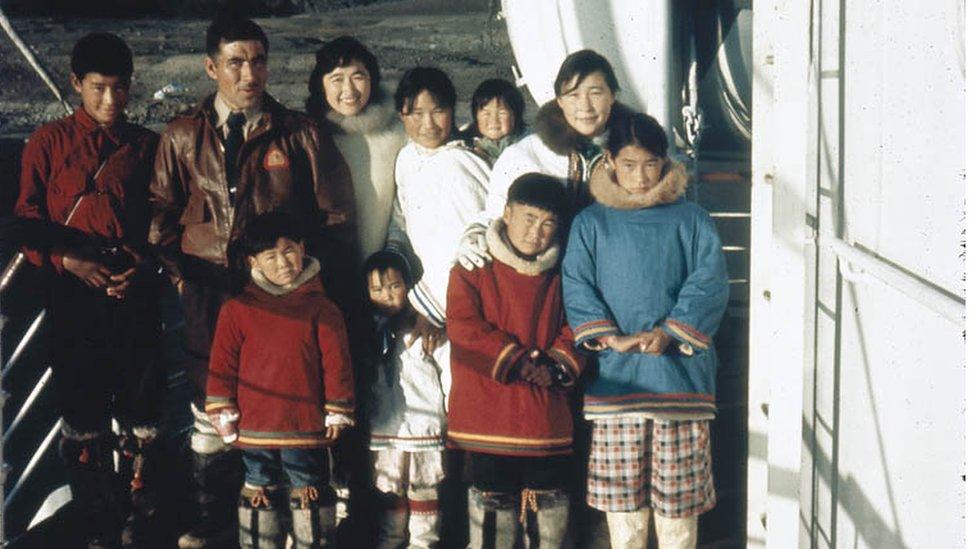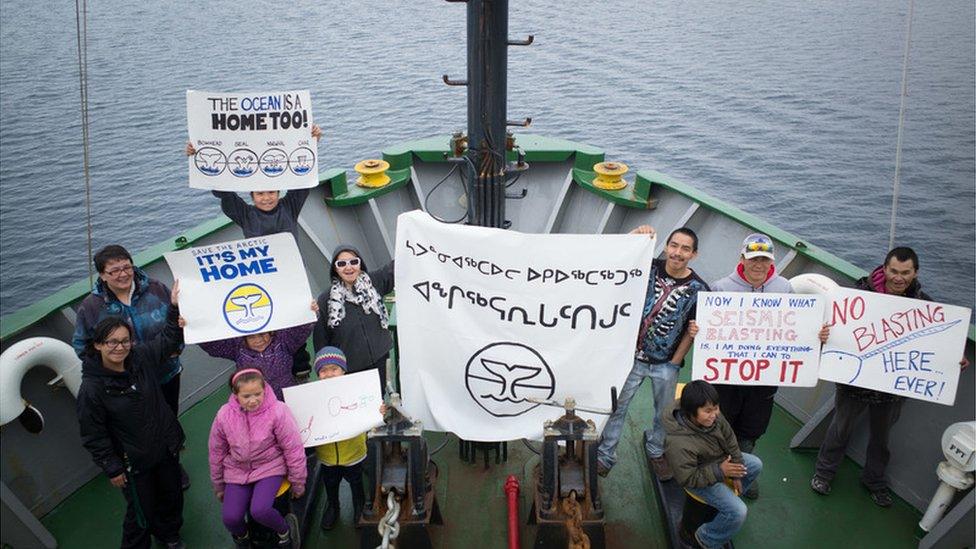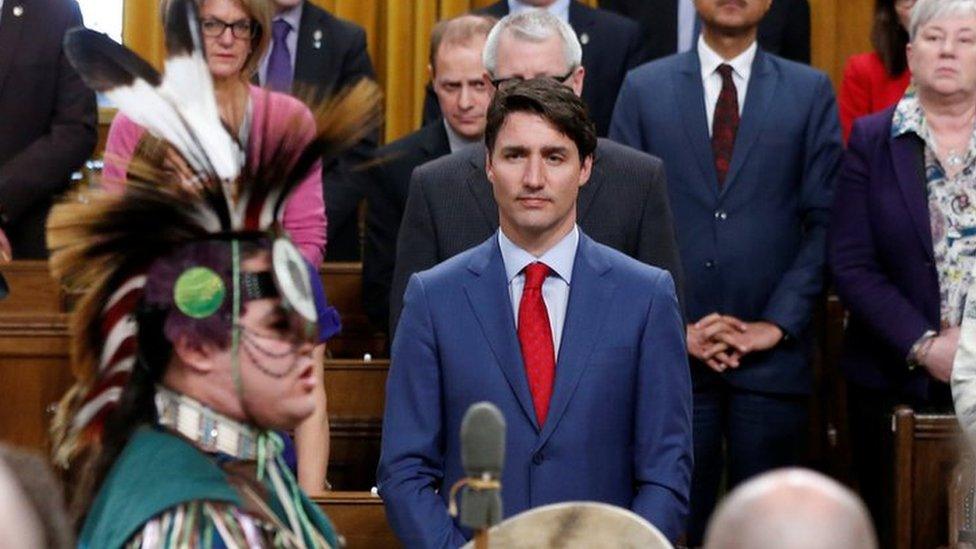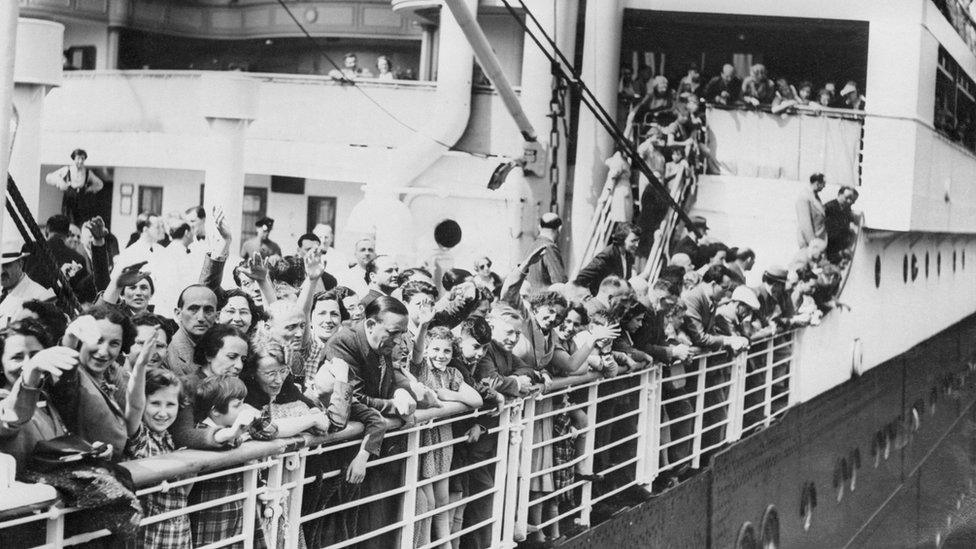Trudeau apologises for Inuit tuberculosis policy in 1950s
- Published

Inuit family on board the CD Howe at Grise Fiord (Qikiqtaaluk), Nunavut in 1958
Justin Trudeau has offered an official apology for the federal government's treatment of Inuit tuberculosis patients in the 1940s and '60s.
During a mid-century outbreak of the disease, many Inuit were forced to go south for treatment.
Separated from their families and unable to speak their language, many were buried in unmarked graves.
The prime minister also announced a new initiative to help relatives find their loved ones' gravesites.
"These were years of isolation, confusion and pain," Mr Trudeau said from the Inuit Arctic city of Iqaluit in the Canadian territory of Nunavut on Friday, where he delivered his official apology and heard from survivors and their relatives.
He had meant to deliver the apology on Thursday, but weather delayed his travel to Nunavut.
"This was a shameful chapter of Canada's history."
In the mid-20th Century tuberculosis became a grave problem among the Inuit population, possibly some of the highest rates recorded anywhere in the world at the time.
In 1952 it was the leading cause of death among Inuit, with about a third of Inuit infected with the disease in the 1950s.
Some patients - including young children - were evacuated for treatment, which often lasted over two years. They were not given the chance to say goodbye to loved ones, and when they returned many had lost their language and had trouble re-adjusting to life in their community.
In 1956, 10% of the Inuit population was receiving medical treatment, mainly for tuberculosis, in hospitals in southern Canada, according to government statistics.
Some were never seen again, as many families were not notified when someone died.
"For a long time, people believed if you got on the ship in the harbour, you may never come home," Mr Trudeau said.
Tuberculosis is still a problem among the Inuit today. The rate is 300 times higher in the Arctic than in other parts of the country, in part because of a lack of health resources, substandard housing and poverty.
Mr Trudeau also announced the launch of the Nanilavut initiative, a database that will help Inuit find family members' gravesites. The government will also provide funds for relatives to travel to these graves.
Inuit artist Robert Kuptana said the apology and the initiatives are a start for the community's healing.
"He has looked me in the eye and said, 'I'm sorry.' Each one of us has got to accept it," he said.
- Published26 July 2017

- Published27 March 2018

- Published7 November 2018
